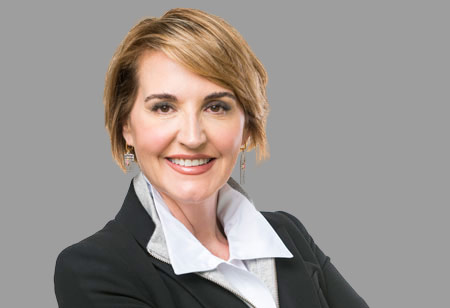Thank you for Subscribing to Healthcare Business Review Weekly Brief

Revitalizing Healthcare Revenue Cycle Management: Embracing Innovation and Efficiency
Healthcare Business Review
I start my day reading healthcare industry news, and every day, I read the same headlines: Hospitals reporting record losses, hospitals planning layoffs, hospitals missing bond covenants, and hospital credit ratings plummeting. In my twenty-five-year career, this is the first time I have seen such dire financial situations in the healthcare revenue cycle.
Often, I'm asked what hospitals can do to rectify poor financial performance, and the answer comes down to staffing, specifically staffing of large administrative departments such as revenue cycle management. The revenue cycle is generally the largest department in the hospital, with some significant health systems employing a thousand representatives who schedule visits, code claims for billing, follow up with payors, and answer patient calls. Aside from the licensed coding staff, many of these team members make $18-$20 per hour.
During the pandemic, hospitals needed to transition staff to work from home, and for the most part, team members enjoyed the flexibility. Now that the pandemic is winding down, hospitals have attempted to transition staff back to the office, resulting in employee dissatisfaction and engagement. Coupled with minimum wage increases in various markets, healthcare workers have found allure in opportunities offered by industries such as retail and food services. This phenomenon, driven by short-term financial gains, has the potential to undermine the long-term stability of healthcare revenue cycle management.
To combat this phenomenon, hospitals assume they have no choice but to raise the hourly wage to attract people back to the healthcare revenue cycle. Still, there are other options to reduce expenditures and improve financial performance. As we navigate this storm, the solutions lie in a holistic approach that leverages innovation, technology, and strategic workforce management. The most effective path to revenue cycle success is to work accounts receivable through a three-tier approach:
Leveraging Automation and Technology
While automation has been part of healthcare revenue cycle management, recent technological advancements offer fresh avenues for efficiency. Robotic Process Automation (RPA) and artificial intelligence (AI) are now poised to reshape revenue cycle tasks. For instance, AI-powered tools like ChatGPT can draft clinical appeals with medical references. Automation can streamline follow-up processes, identify accounts to write off and focus on tasks lacking expertise or staffing. However, it's essential to understand that automation complements human skills but doesn't replace them.
The intricate dance of empathy, critical thinking, and adaptability remains the forte of human professionals.
Embrace outsourcing with a Combined Domestic/Global Delivery Model.
Outsourcing, once met with resistance, has now become a vital part of healthcare revenue cycle management. Outsourcing enables hospitals to reallocate internal resources to focus on tasks requiring human intervention. For instance, back-office roles that don't require face-to-face interactions can be effectively outsourced. Outsourced call centers offer sophisticated workflows that streamline patient interactions. The concept of a global delivery model has expanded beyond traditional offshoring hubs like India to places like Mexico, Puerto Rico, and Nicaragua. This is due to cultural nuances and language considerations, especially involving voice-to-voice patient interactions.
Empower Staff for Critical Thinking and Complex Tasks
Human expertise remains indispensable, particularly in areas that demand critical thinking and complex problem-solving. As automation handles routine tasks, staff members can focus on higher-order responsibilities. Engaging patients, navigating complex billing scenarios, and adapting to evolving healthcare regulations require human sensitivity, empathy, and cognitive skills. Continuous learning and improvement initiatives ensure staff remains up-to-date with the latest industry developments, contributing to the overall resilience of healthcare revenue cycle management.
Continuous learning and improvement initiatives ensure staff remains up-to-date with the latest industry developments, contributing to the overall resilience of healthcare revenue cycle management.
Healthcare revenue cycle management challenges are daunting but present an opportunity for transformation and growth. Hospitals can navigate these turbulent times by embracing innovation, optimizing technology, and nurturing a skilled workforce. The combined strength of human expertise and cutting-edge technology will pave the way for a more efficient, patient-centric, and financially resilient healthcare revenue cycle management system. In this pursuit, the path forward lies in striking the right balance between human ingenuity and technological prowess.









